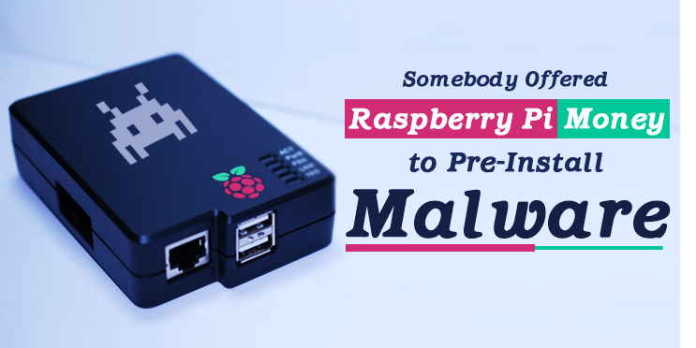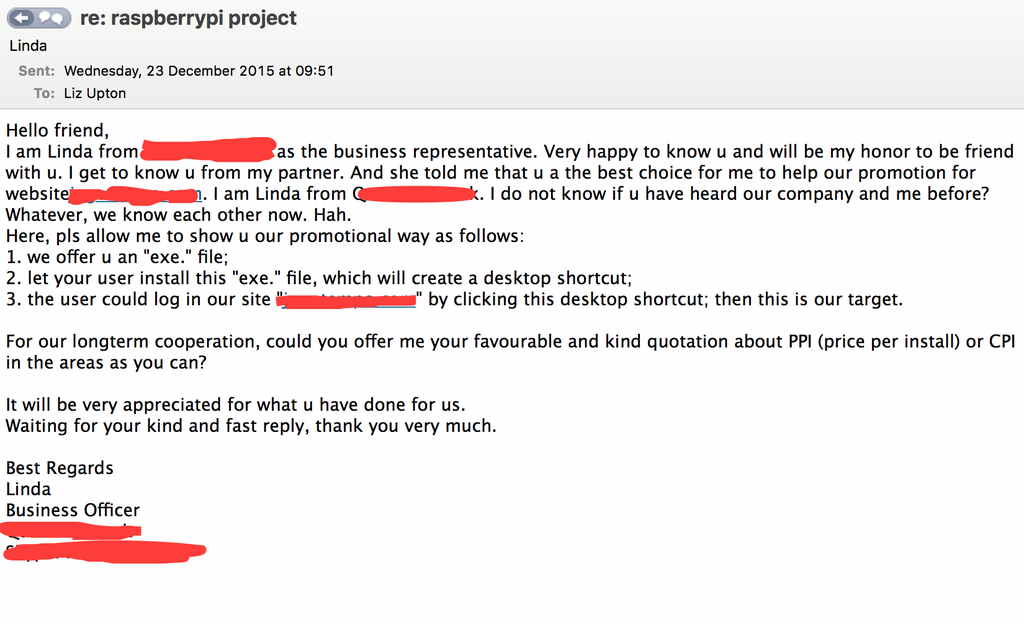The Director of Communications Foundation, Liz Upton, revealed the content of the photo in an email from a “business agent” named Linda. The latter promised a “price system” for the suspicious executable file. However, the name of the company represented by Linda was not disclosed. “Incredible. This person seems very sincere in offering us money to install malicious software on your machines,” said Liz. Also Read: Turn USB Charger Into A Linux Machine
Someone Tried to Offer Money to Raspberry Pi Foundation For Pre-Installing Malware
It would not be wrong to say that Linda’s approach was not strictly professional. Indeed it is not the actual name as in the image, and the unexpected success of the Raspberry Pi has brought them into the spotlight. However, the offer seems genuine, and it casts light on casts dark world of malware distribution fee. The prospect of an attacker installing the implants and persistent malware on consumer devices is a serious threat. Sometimes some people are willing to pay to distribute malware, while sometimes, the developer directly inserts the unauthorized code in their software. However, in most cases, the malware is served by a third party with the intention of compromising the end-customer devices. Also Read: How To Install Kali Linux On Any Android The Raspberry Pi Foundation declined Linda’s offer, describing his business as “bad”. The request does not come as a surprise, given that about 70 million piracy torrent sites are raking serving malware-free media applicants. So far, the Raspberry Pi Foundation has sold more than 5 million units of their affordable computer, and the number is still rising. Raspberry Pi Foundation, as many as 5 million user base, malware distributors sure this coveted, hoping to hide their malicious code in the market among the hottest product firmware. Also Read: How to Make Linux Bootable Pendrive Cheap computer Raspberry Pi credit card-sized piece has been used in the Internet of Things, hackers can gain access to through its high-security environment in which it is run. Because the current has not run on the security software networking equipment, if infected with malicious software, it will continue to run for many years – until you erase the firmware – which rarely happens in a production environment. Also Read: How to View and Delete all Google Now Voice History Suppose the Raspberry Pi Foundation and Linux Foundation are not closely related, and their principles of openness allow the community to build the software. In that case, we may have to worry about this. Many people on the Internetsay that the vast majority of Raspberry Pi is run under Linux, and the EXE file is useless. This is not critical. Send this message was not professional. The real focus of this article is that malware distributors are constantly looking to inject their malicious software and new clients and do not discuss technical issues with this message itself.



